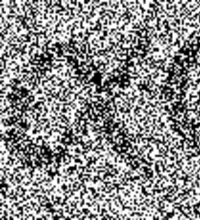
Hiding Among The Clones: A Simple And Nearly Optimal Analysis Of Privacy Amplification By Shuffling
Vitaly Feldman (Apple)
Calvin Lab Auditorium
Recent work of Erlingsson et al (2019) demonstrates that random shuffling amplifies differential privacy guarantees of locally randomized data. Such amplification implies substantially stronger privacy guarantees for systems in which data is contributed anonymously and has lead to significant interest in the shuffle model of privacy. We show that random shuffling of $n$ data records that are input to $\epsilon_0$-differentially private local randomizers results in an $(O((1-e^{-\epsilon_0})\sqrt{\frac{e^{\epsilon_0}\log(1/\delta)}{n}}), \delta)$-differentially private algorithm. This significantly improves over previous work and achieves the asymptotically optimal dependence in $\epsilon_0$. Our result is based on a new approach that is simpler than previous work and extends to approximate differential privacy with nearly the same guarantees. Importantly, our work also yields an algorithm for deriving tighter bounds on the resulting $\epsilon$ and $\delta$ as well as Renyi differential privacy guarantees. We show that our algorithm gets to within a small constant factor of the optimal bound. Joint work with Audra McMillan and Kunal Talwar


